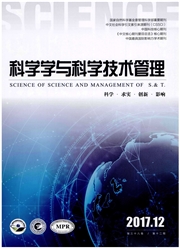

 中文摘要:
中文摘要:
通过引入知识的时间价值和自然选择压力,扩展了现有的组织探索式和利用式学习的多主体仿真模型,评估两种类型的信息技术组织表现的影响。其中一种是支持组织成员之间相互学习的横向技术,另一种是支持组织与成员相互学习的纵向技术。仿真实验结果表明,外部环境复杂、波动大、高水平知识边际价值大、成员学习能力强、规模和人员流动率小、面临竞争压力小的组织,横向技术更有利;反之则纵向技术更有利。组织应当依据外部环境对探索和利用的要求,以及内部环境中的探索和利用性质,有倾向性地组合不同的信息技术,以实现组织对环境的更好适应。
 英文摘要:
英文摘要:
By introducing time value of knowledge and nature selection pressure, the earlier agent-based simula- tion models of exploration and exploitation learning were extended for assessing the impact of two kinds of infor- mation technology on organization performance. One is the horizontal technology which supports inter-personal learning, and the other is the vertical technology which supports mutual learning between organization and its members. Results of simulation experiments suggest that horizontal technology is more advantageous when the en- vironment is more complex and turbulent, the margin value of knowledge and the capability of members are high- er, the population and turnover are less, and organizations face more nature selection pressure; otherwise vertical technology is more advantageous. Organizations should combine different kinds of information technology, but with inclination of one, according to both the external requirement and the internal quality of exploration and ex- ploitation for more adaptation to the environment.
 同期刊论文项目
同期刊论文项目
 同项目期刊论文
同项目期刊论文
 期刊信息
期刊信息
